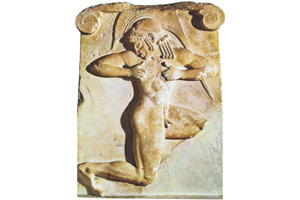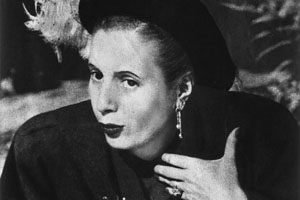Originally, Greeks lived scattered in the countryside. They then came to form tribes and the population settled into small villages. Later, due to the constant state of war, kings and nobles built fortified strongholds, within which artisans and merchants were protected. This was the inception of the city-state, which worked as an autonomous state, called Polis. Sparta and Athens were the most important among them.
The development and growth of cities brought about economic and social change. As the population grew, land became scarce and it was necessary to look for new extensions for agriculture. The development of industry (weaving, pottery and metallurgy) forced to look for new markets to sell products.
Towards 750 B.C., Greek expansion began. It was to last two centuries. Many colonies were founded in the Mediterranean coasts and the Black Sea and they were also constituted as city-states.
Southern Italy had so many Greek colonies that the region came to be known as Magna Grecia.
The wealthiest «Polis» outside Greece were Byzantium (currently Istanbul in Turkey), Syracuse on the island of Sicily, Masalia (Marseille) in France, Saguntum and Malaga in Spain and Naucratis in Egypt.
Sparta
Located in the Peloponnese, military power gave this city enormous influence.
The state’s constitution is attributed to legislator Lycurgus.
The state was under exclusive control of two kings only in the eventuality of a war. When peace ensued, these kings, together with 28 men over 60 years of age, formed the Council of the Elders or Gerousia. It drafted laws that had to be passed or rejected by the Assembly of Citizens. This assembly also decided on the issues of war, peace, alliances and it chose five ephors. The ephors summoned the Assembly of Citizens, managed the state treasury and controlled the administration. Their powers were later expanded to include the faculty of removing and even condemning kings to death.
Athens
In the region of Attica, in the northeastern part of the Peloponnese, Athens was born.
It was originally ruled by kings, but they were later replaced by nine archontes (archons in English) or supreme magistrates, elected annually by an assembly dominated by the nobility or eupatridas (rich aristocrats). There was a supreme tribunal named Aeropagus.
At the close of the 7th Century B.C., the eupatrida Draco dictated the first legal code, which was very strict. In 549 B.C., archon Solon wrote a new constitution. It abolished the privileges of the nobility and declared all the inhabitants of Attica free citizens. It also divided the population into four classes: the great landowners, the knights, peasants and manual labourers (thetes). The exarchons conformed the Aeropagus, which was kept as the Supreme Tribunal.
The Council of the Four Hundred or Boule was instituted. Its members were chosen among the citizens of the first three classes. The function of the council was to prepare the issues that were to be submitted to discussion and decision at the Popular Assembly or Ecclesia, were all citizens had a voice and a vote.
Later, Clysthenes (510 B.C.) abolished the oligarchic elements in Solon’s Constitution and founded a full democracy: «the government of the people by the people«. He established that all decisions were to be made by the Popular Assembly and the Boule, while the attributions of the Aeropagus and the archons were diminished.








 Muere Evita
Muere Evita